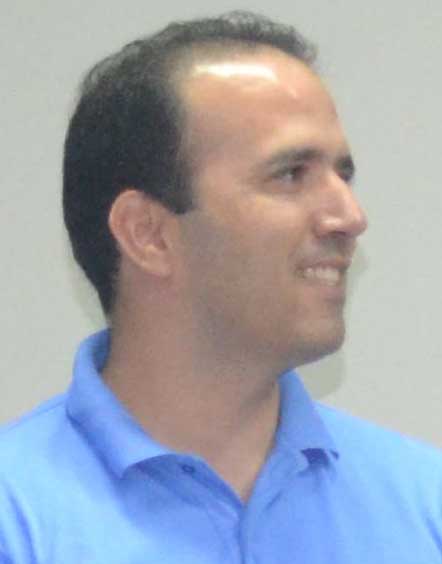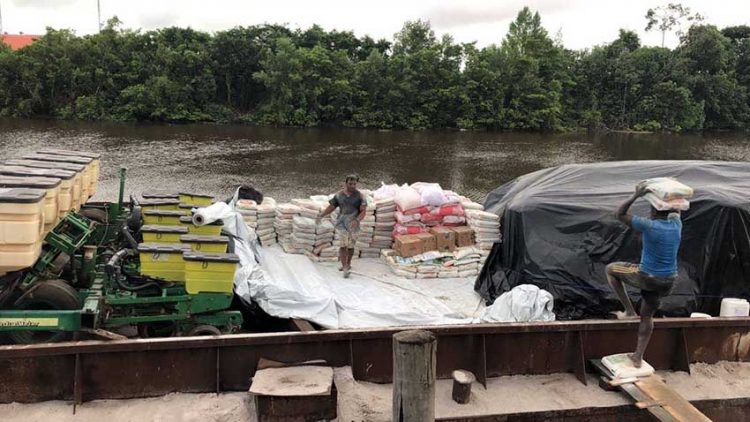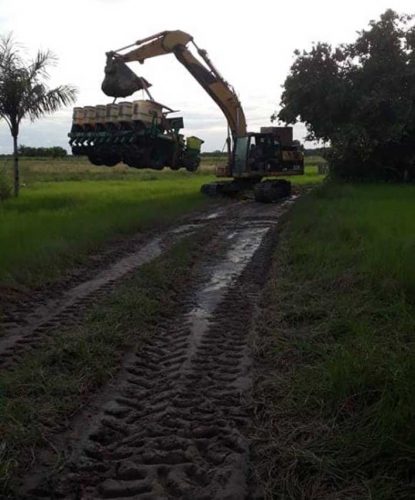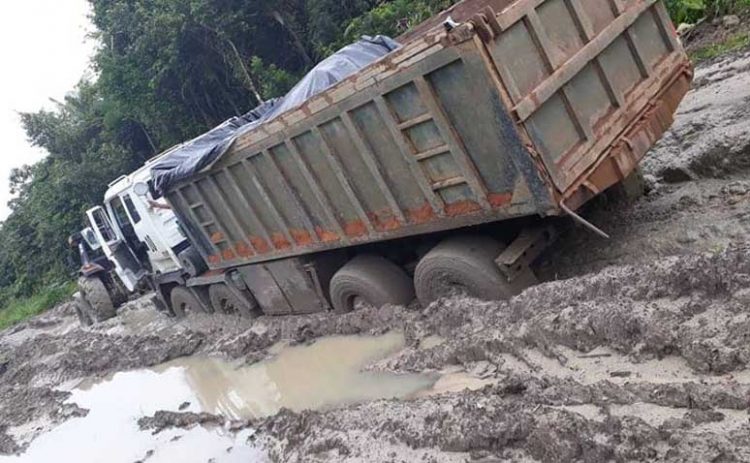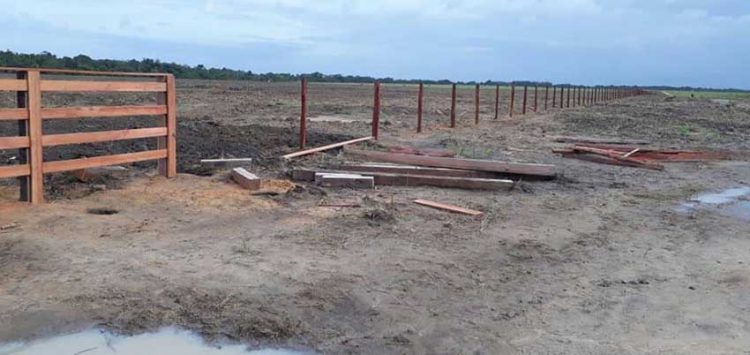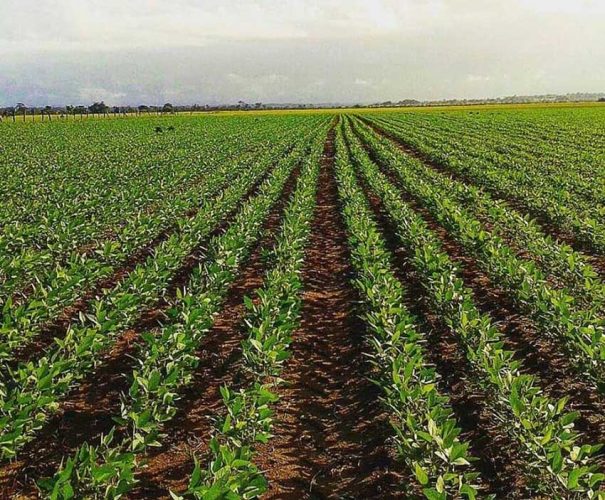Although Brazilian businessman Yucatan Reis is behind an agriculture project to acquire lands in Guyana’s intermediate savannahs, he still has not used the 23,000 hectares he leased in 2015 for the purposes stipulated under that agreement, sources say.
But Reis, through former President Donald Ramotar, has denied this saying that he is working to fulfil his commitments but the terrain to get to the Ebini lands, Berbice is more treacherous than catered for and has posed a problem in getting in the large and heavy machinery needed.
Nonetheless, he says he is forging ahead with his old project with the aim of meeting the commitments stipulated by this country so that he could access other lands for an expansion project that is planned.
Reis was written to by the Guyana Lands and Surveys Commission (GL&SC) earlier this year about the “non beneficial occupation” of at least one tenth of the 23,000 hectares of land he was given as part of an agreement he signed with the People’s Progressive Party/Civic (PPP/C) administration shortly before the 2015 General and Regional Elections.
According to documents seen by the Stabroek News, Reis, of NF Agriculture Inc. was granted the state lands, located at Ebini on the right bank of the Berbice River, in March 2015.
The Memorandum of Understanding, with signatories being then Minister of Agriculture Leslie Ramsammy, Keith Burrowes for the Guyana Office for Investment (GO-Invest) and Reis, covers an agreement that the developers develop at least a portion of this and they would then be eligible to for an additional 30000 hectares in what was to be a phased development project “with soya bean varieties from Brazil”.
The land is leased for a mere $25 per year, per hectare, for the first five years and the fee would be increased to $50 per hectare from the 6th year. The lease covers a 50-year period.
“After the first year of the lease expired, lands (GL&SC) visited and did not see any developments as promised in the agreement. GL&SC wrote to Reis about the findings but the letter was returned to its office with the post office noting that the person could not be found at the said address,” the source said.
“I am not sure if during that time he learned that the lands and surveys department was looking for him to discuss the breach in the contract agreement. They were supposed to utilize one tenth of the land by a certain time or it will be termed non beneficial occupation and that is a violation of the agreement,” the source added.
Former President Ramotar, under whose tenure the contract with Reis was signed, said that he knows that Reis has started some work at the site. He told this newspaper that while the contract’s signing date may look suspicious to some given its close proximity to the General and Regional Elections, which were held in May of 2015, he saw it as a viable and much needed project for the country.
“The project was for soya bean and corn. My idea was to bring in new crops. I knew we had potential in corn and soya and I wanted to do coconut too. Leslie was working to see how he can expand the coconut industry and I was also beginning to look at cocoa again but time ran out on me,” he said.
Pull factor
“I thought we needed to have a big project to have a pull factor then other investors would come and get started and other farmers would follow. They projected that Guyana would have been self-sufficient in all of their soya bean production in two years and within four to five (years) we would have started exporting those crops,” he added.
The former President said that only recently he spoke to Reis who informed him that he was working on the project and showed him photographs of equipment he had brought in for works at Ebini. “All these projects that government is now talking about were in the works a long time. I saw Reis about six weeks ago and that is not what he told me. He told me that he was working on the project and that he had brought in some equipment…he explained also that it was very difficult getting machinery to the location,” Ramotar said.
Recently, an MOU was inked between NF Agriculture Inc and investors of Lucas do Rio Verde which will see the commencement of an Agricultural Village in Guyana’s Intermediate Savannah, a release from the Ministry of Agriculture last week stated. This project is meant to occur in an area different from where Reis currently has lands.
The Agreement was signed at the Rio Verde Research Foundation in Mato Grosso state in south central Brazil.
The work which is scheduled to begin shortly will cater for the construction of bioethanol stations, a state-of-the-art Research Institute, and large-scale agricultural production of corn and soybean and banking institutions among other ventures.
The release said that Agriculture Minister, Noel Holder who led a delegation to the city of Lucas do Rio Verde, Brazil from June 3-9 got a firsthand look at the production base of the private sector within the State.
While at the Research Station, the team was met by the Research Institute’s President Marino Franz who showed the work of the institute via a video presentation, highlighting some of the progress the institute has made in the area of research to ensure farmers receive only the best form of seed materials.
“The work of the Institute is diverse in that we not only look for new and innovative ways each day to improve technology, but we work to ensure that all trials are done aimed at improving production and productivity,” Franz said, according to the press release.
One hundred percent of the technology employed in the Brazilian state of Roraima which borders Guyana came from the Research Institute which annually hosts a demonstration of new and innovative ideas to boost production, the release said.
“Our soil type is similar to that of Guyana, so whatever is applied here with this amount of success can be safely adopted in Guyana guaranteeing the said amount of successful returns,” he added.
Speaking about soil improvement, Franz said “What is needed is for farmers to first plant the soya bean, then plant their corn (the inter-cropping method), then dig half-meter deep and break the soil and apply your limestone….This is the method which has been adopted by the foundation over the years and has been successful in each case for our farmers”.
Franz stated that for Guyana’s farmers to boost their production base, the right amount of fertilizers and the genetics of plants are key. This approach is what the investors will be bringing to Guyana with the completion of the state-of-the-art research institute which will be used to train Guyanese.
Sources familiar with the MOU and planned investment said that no investment amount was given to the project as the Guyana delegation was invited not to commit to an agreement but to see firsthand works of a similar nature in Brazil.
“The land Reis has is a different project to this one. What this project caters for needs a lot more land because we are talking very large scale farming. We went to Brazil on the invite of them to have a feel for ourselves what we would be dealing with. They have to now come to Guyana and through negotiations with GO-Invest and Ministry of Agriculture, will map out the way forward,” the source said.
“It was not to sign a contract. Everything has to go through the correct process and get the green light from government before we can go further. Reis has investors already who want to put millions of US (United States) dollars into the project. We have the land and we will see where we go. It is a great project,” the source added.
